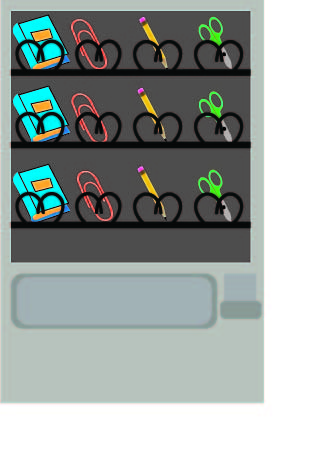Imagine if the average high school student had a quarter for every day they forgot a pen or pencil. Now imagine if a school of 2,000 students had a quarter every time any teacher, student or administrator needed materials they did not have.
The Richmond Convention Centre brought this simple idea to life by installing a vending machine with a variety of common office supplies in the building. I thought this was genius: people each day find themselves with a broken pencil or a dry highlighter, and in need of a replacement. But they have few options for getting the supplies they need in time.
Rather than badgering that one friend we all have who has the discipline to organize all of their pencils and pens into a tidy pouch, people who do not have the school supplies they need often find themselves in a difficult position.
Schools should capitalize on that fact by selling common classroom necessities such as pens, pencils, highlighters and erasers students and teachers alike need, yet commonly forget.
Installing a vending machine that sells supplies instead of snacks carries more than just financial benefits. In an article for Tolerance magazine, Seattle professor Chad Donohue suggests that a student feels extreme stress when they realize they have forgotten a writing utensil needed for class. Donohue argues eliminating this stress would improve student mental health and attendance records.
In the context of the article, Donohue suggests teachers should give students a pencil, or any writing utensil, when a student requests one, as opposed to shaming them for being irresponsible or forgetful. But a public high school does not have the funds of a university, and therefore cannot afford to dole out class supplies whenever necessary.
A class material vending machine would solve both problems. Students would not have to worry themselves with requesting a writing utensil from their teacher in front of their entire class; if they have a quarter, they have a pencil.
Public schools hold the responsibility of educating kids across a variety of income levels. Being fully-prepared for school can sometimes be costly, and students often cannot afford all of the things they need for their classes. The unfortunate result is a student who is in need of supplies cannot buy them simply due to steep prices.
Staples sells a dozen pens that cost approximately eight dollars. If schools bought only four packs of 36 pens, put the pens in a vending machine and charged 75 cents per pen, more students would be able to come to class prepared with the materials they need, and the school would turn a 12 dollar profit. Skimping on supplies due to high-retail markups would be a thing of the past, and students without supplies would no longer be a burden on schools or teachers.
People expect sporting goods retailers to sell Gatorade in their stores because people use sports drinks while playing sports. It is the same reason why people expect a drug store to sell pill containers: when people use a drug store’s primary product they might need a relatively common secondary product to go with it.
So it makes no sense that a school would not provide learning materials to enable students to perform necessary tasks in class. Success starts with being prepared, and selling school supplies allows both schools and students to achieve more.

